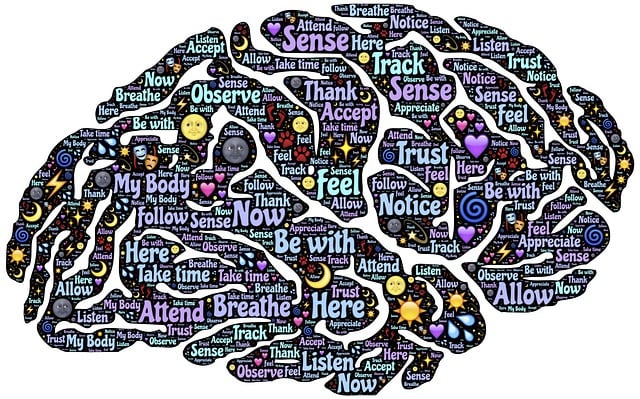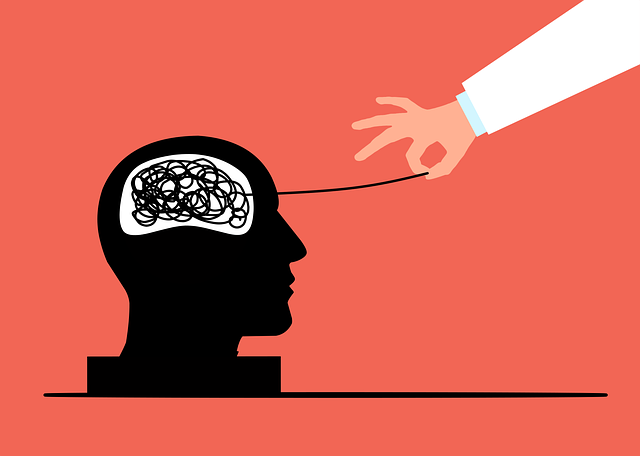Emotional intelligence (EI) is a powerful tool for improving well-being and relationships, especially in stressful times like today. Colorado Springs trauma therapy focuses on EI as a key to healing from trauma, using techniques like mindfulness and cognitive behavioral therapy. The program enhances coping mechanisms, improves mood management, deepens connections, and prevents burnout, empowering individuals to handle their emotional well-being both inside and outside the therapeutic setting. Through cognitive reframing and role-playing scenarios, clients develop empathy and social skills for stronger interpersonal relationships, supporting trauma recovery and providing lifelong tools for better emotional connections.
Emotional intelligence (EI) is a powerful tool for enhancing well-being and navigating life’s challenges, as evidenced by the growing popularity of Colorado Springs trauma therapy. This article explores EI’s profound impact on mental health and personal growth. We’ll delve into effective strategies for identifying and managing emotions, fostering empathy, and developing robust social skills through therapy practices tailored to meet individual needs in Colorado Springs.
- Understanding Emotional Intelligence and its Impact on Well-being
- Identifying and Managing Emotions Effectively in Colorado Springs Trauma Therapy
- Strategies for Enhancing Empathy and Social Skills through Therapy
Understanding Emotional Intelligence and its Impact on Well-being

Emotional intelligence (EI) is a powerful tool for enhancing well-being and fostering healthy relationships. It involves recognizing, understanding, and managing one’s own emotions, as well as empathizing with and responding appropriately to the feelings of others. This ability to navigate and regulate emotions can significantly impact mental health and overall life satisfaction. In today’s fast-paced world, where stress and anxiety are prevalent, Colorado Springs trauma therapy has seen increased interest in developing EI, especially in efforts towards mental illness stigma reduction.
By cultivating emotional intelligence, individuals can build better coping mechanisms, improve their mood management skills, and enhance their ability to connect with others. Empathy building strategies play a crucial role in this process, allowing people to understand different perspectives and reduce judgments based on past experiences or societal norms. This, in turn, contributes to more positive interactions and stronger support systems, which are vital for navigating life’s challenges and promoting resilience.
Identifying and Managing Emotions Effectively in Colorado Springs Trauma Therapy

In Colorado Springs Trauma Therapy, identifying and managing emotions effectively is a cornerstone of our approach. We understand that trauma often leads to complex emotional responses, which can be both overwhelming and confusing. Our therapists are trained in helping individuals recognize and label their feelings, providing them with tools to navigate these intense emotions. Through various techniques such as mindfulness exercises and cognitive behavioral therapy, clients learn to manage stress and avoid burnout, essential components of our Colorado Springs Trauma Therapy program.
By integrating communication strategies that foster open and honest dialogue, we create a safe space for individuals to express their experiences. This process not only aids in processing trauma but also enhances emotional intelligence, enabling better coping mechanisms and improved relationships. Incorporating Burnout Prevention Strategies for Healthcare Providers and Stress Reduction Methods into our therapy sessions ensures that clients leave feeling equipped to handle their emotions, both within and outside the therapeutic setting.
Strategies for Enhancing Empathy and Social Skills through Therapy

In Colorado Springs trauma therapy sessions, professionals employ a range of strategies to enhance empathy and social skills, which are pivotal components of emotional intelligence. Therapists often guide clients through cognitive reframing exercises that encourage positive thinking and foster a growth mindset, grounded in Mind Over Matter principles. By helping individuals challenge negative thought patterns and beliefs about themselves and others, these sessions promote emotional well-being.
Furthermore, therapy may involve role-playing scenarios to practice active listening and nonverbal communication cues, thereby deepening clients’ capacity for empathy. Through consistent practice and feedback, individuals can develop more nuanced social skills, enabling them to navigate interpersonal relationships with greater ease and understanding. This holistic approach not only aids in trauma recovery but also equips individuals with lifelong tools for cultivating stronger emotional connections.
Emotional intelligence is a powerful tool for enhancing well-being, and Colorado Springs Trauma Therapy offers effective strategies to develop this skill set. By understanding emotional intelligence and its impact on mental health, individuals can navigate life’s challenges with greater resilience. Through identifying and managing emotions, along with cultivating empathy and social skills in therapy, people can improve their relationships and overall quality of life. This transformative process empowers folks in Colorado Springs to lead more fulfilling lives.














